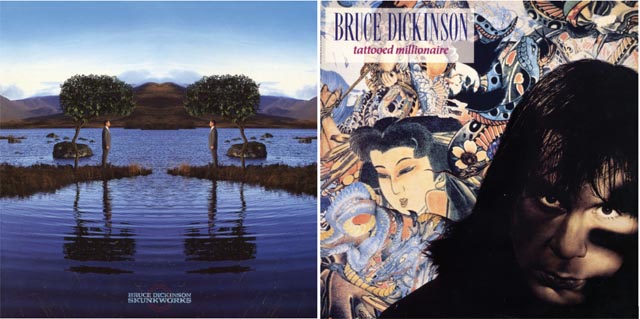It’s cool when other music fans get into the metal you like, right? Tell that to the underground faithful, who are often so protective of death, black, thrash and other forms of extreme music that they’re constantly concerned that metal will get diluted by outsiders. SXSW’s panel “Has Metal Lost Its Edge?” sounded like a call for the most elite to show up and voice worry for a modern state of affairs, but as regular Pitchfork/NPR/Metal Sucks/everywhere contributor and moderator Kim Kelly pointed out immediately, that wasn’t the true focus.
The full intended title was actually “Has Metal Lost Its Edge? Ask the New York Times,” and its purpose was to examine a boom in metal acceptance within mainstream and indie rock-focused media within the past few years. With Fred Pessaro (Noisey), Brandon Stosuy (Pitchfork), Chris Grigg (Woe’s mastermind) and Emilie Friedlander (The Fader) all weighing in, it could have felt like a benediction from some kind of metal shadow government. Instead, it couldn’t have put the metal community forward more clearly and articulately.
In lieu of a full transcript, we’ll offer a few key quotes from everyone there:
On the acceptance of underground metal by indie rock and/or the mainstream.
Chris Grigg: I don’t have any negative things to see about it. Most of us on the receiving end can’t complain… Most of the underground realizes that when Pitchfork supports a band, it doesn’t detract from them… We still play the same shitty shows, and at the end of the day, we’re still the same band.
Brandon Stosuy: If you have a Twitter account or even a Bandcamp page, you can’t really say you’re underground. You’re putting yourself out there.
CG: You have these music journals that are now taking metal seriously, and not doing it in a cartoony way like some metal publications. You won’t see them do these Hottest Chicks in Metal features…You won’t see them trivialize the genre.
Fred Pessaro: Someone told me I was responsible for the Saint Vitusification of indie music. Like Kurt Vile’s hair is longer.
BS: I think culture at large is focused on the freak show aspect. I mean, there’s a Doritos stage right across from us. …You can imagine black metal being on an episode of SVU.
FP: I’ve worked with Indian a few times in the NY area…for that show, the patio at Mohawk was huge. That’s great for indie and great for everyone.
On Deafheaven, who are a topic of scorn these days by some metal purists:
Kim Kelly: The thing that makes Deafheaven so special is that they still have integrity.
BS: Full credit to Fred, I saw them first at a show he put on. There’s something people respond to. It’s the same kind of thing people get out of Explosions in the Sky.
FP: It just seemed a little bit different for me. They were completely normal bros, not rolling out in the corpse paint.
CG: I think that black metal is taking itself a lot more seriously now than it used to. In the past few years, the bands themselves are saying, we’re somewhat normal people who happen to love this music. It helps to get this taken seriously (and respected). It helps to get rid of the sensational aspect… There’s as much really extreme, abrasive underground metal now as there has ever been. It’s always felt to me like a very American thing to do, to take styles and push them all together.
KK: The underground is fine. Nothing can hurt it, nothing can touch it.
On extreme metal bands getting involved with corporations:
CG: Having played Scion Fest, it was the best experience I’d ever been a part of. It enabled us to your the West Coast. The danger is when bands stop being suspicious of the money coming in from these corporations. … Now Scion is only repping bands that are very PG-13, and you start getting this money and attention toward bands that may never have succeeded in the first place, that didn’t have that growth there.
FP: I have no issues as long as you’re smart about it. Some friends of mine took money from Scion and put out a record, and there was backlash because they were a very political band. It’s about understanding your audience and what you can get away with.
BS: For me, I think there’s always limits. You should do it tastefully.
On the possibility of converting non-metal fans into metal fans:
Emilie Friedlander: Not too many metal fans read Fader naturally. It’s more that we’re introducing it to fans of different kinds of music. But the community really seems to care about its bands.
CG: We earned a lot of fans we wouldn’t have had otherwise by getting a good review of Pitchfork and having a premiere. …The metal community tends to follow their bands, but we’ve generally found that we reach a new audience.
On formats of music:
BS: I think that just kind of comes and goes. When you live long enough, you see these things happen over and over again, and not in a cynical way.
CG: At least [with a] cassette tape, there’s some effort that went into making it.
A good summation of the panel:
KK: I might be a sellout, but if I can help some kid in Oklahoma find Darkthrone, it’s all worth it.












